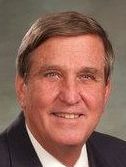DENVER —As former Colorado Gov. John Hickenlooper prepares for a possible run for President, questions surrounding his actions in the final months of his term remain unanswered because of destroyed, denied or delayed Colorado Open Records Act (CORA) requests and an ongoing Independent Ethics Commission investigation.

The biggest questions are around Hickenlooper’s relationship with multimillionaire brothers Elon and Kimbal Musk and why the Colorado Department Public Health and Environment (CDPHE) destroyed all emails and other documents of a former administrator for the Colorado Air Quality Control Commission (CAQCC) during Hickenlooper’s term.
Those destroyed documents may have given insight into one of Hickelooper’s final executive actions as governor; a mandate to lower automobile emissions, a move the Musks stand to gain from financially.
Additionally, the CDPHE claimed there were no emails or other documents between Larry Wolk, the former executive director of the CDPHE and Hickenlooper or any of his staff members or members of the CAQCC.
Both men, whose records either don’t exist or were destroyed, left their positions around the same time — just weeks after Hickenlooper’s June 19, 2018 executive order that directed the CAQCC to enact regulations in Colorado identical to those in California pertaining to low emissions vehicles (LEV), and in November, the CAQCC passed those standards.
Hickenlooper stopped just short of requiring California’s Zero Emission Vehicle (ZEV) program — although hinting the CAQCC could choose to look at it on its own. Some say Hickenlooper’s message was such because the ZEV requirement would have increased scrutiny of his relationship with the Musks while he was trying to portray himself as a middle-of-the-road, practical presidential candidate.
However, just days after being sworn in, new Governor Jared Polis issued his own executive order mandating the ZEV program. Polis ordered the CDPHE to propose a ZEV rule like the one in California to the CAQCC no later than May 2019 establishing a ZEV program.

Sen. John Cooke, R-Greeley said the move by Polis, which is one more step toward Polis’ goal of making Colorado 100 percent renewable energy by 2040, didn’t surprise him.
“Hickenlooper said, ‘I’m not doing zero emissions, but that is within the purview of the Air Quality Control people,'” Cooke said recalling Hickenlooper’s mandate. “I think they were going to plan on doing zero emissions, but they were going wait for Polis to get in there. I think it was all planned.”
The need to separate Hickenlooper from the ZEV mandate, said Cooke, comes from his relationship with Elon and Kimbal Musk.
Hickenlooper has long maintained a distance from Tesla’s majority owner and CEO, Elon, stating his friendship is with Kimbal, a fellow restauranteur and founder of The Kitchen. In April 2018, Hickenlooper officiated over Kimbal’s wedding in Texas, the details of that are part of an Independent Ethics Commission complaint against Hickenlooper.

However, Kimbal’s business ventures go beyond food and beverage. In addition to being on the board of directors for Chipotle and SpaceX (which was founded by Elon and is rumored to be merging with Tesla), Kimbal is also a shareholder in Tesla and a member of the board of directors since April 2004. According to a Statement of Changes in Beneficial Ownership filed with the Securities Exchange Commission on Oct. 3, 2018, he owns nearly 150,000 shares in his brother’s company.
His ownership may be a small percentage overall in the all-electric vehicle manufacturer, but more than one third of his shares are in outstanding options and carry the most opportunity for large returns.
For example: as of Dec. 31, 2017, Kimbal had 57,500 outstanding share options. In October, he exercised his right to purchase 1,875 of those shares at $29.66 per share and immediately sold those shares for $306 per share for more than $500,000 in profit.
As Tesla’s stock value rises, those returns will get larger, and with the new mandates in place, Tesla stands to benefit substantially, leading those opposed to the LEV and ZEV mandates to believe Hickenlooper abused his power when he put in place the LEV mandate.
“It becomes an economic development issue for California because that’s where Tesla’s based,” Tim Jackson, President of the Colorado Automobile Dealers Association, told Complete Colorado previously.
However, for Colorado, the mandates could cripple the economy, Jackson has said.
“Because of Colorado’s uniquely demanding driving conditions and its residents’ outdoor vocations and avocations, three-quarters of new vehicles sold here are SUVs or pickups,” Jackson wrote in an op-ed that appeared in Complete Colorado. “Unsurprisingly, that’s different than the driving demands and vehicle mix in California, which has a higher percentage of cars. So rubber stamping rules created by the unelected California Air Resources Board for that state’s temperate climate and uniquely bad air simply doesn’t make sense in Colorado.”
Jackson has said that the mandates will add a more than $2,000 tax to the sticker price of average new vehicles in Colorado, a tax that will be even higher on the SUVs and trucks that Coloradans prefer.
“This is hard-earned cash that the typical new vehicle buyer in Colorado will not recover and will have the biggest negative impact on working families and the economically disadvantaged.”
New car buyers will not be able to get around that by buying out of state either. Cars will not be able to be registered in Colorado unless they meet the standards or after they have more than 6,500 miles on them.
THE BACKGROUND —
CLEAR or the Colorado Low Emission Automobile Regulation was created by Hickenlooper’s mandate. It requires manufacturers of new light-duty (less than 8,500 pounds) and medium duty (less than 14,000 pounds) vehicles to meet California’s low emissions standard for vehicles sold in Colorado beginning with the model year 2022. Any change to California’s standards would automatically apply to Colorado as well, effectively putting Colorado’s emissions standards under the control of the California governor and that state’s version of the CAQCC.
All states must adopt vehicle emissions standard equal to either the Environmental Protection Agency (EPA) or California, which is the only state to hold a waiver from meeting EPA standards. Currently California standards are equal to the EPA, however, the federal government has discussed rolling back the standards.
The CAQCC did not initially require the Zero Emissions Vehicle (ZEV) piece of California’s legislation that requires a growing percentage of all vehicles to meet the standard by certain timelines.
However, on Jan. 17, Polis announced an executive order, putting the ZEV program into motion.
ZEV is highly controversial as it requires auto manufacturers to purchase “credits” from competing companies if they fail to sell the minimum mandates of ZEV automobiles in a given year.
Currently, the only auto manufacturer of 100 percent electric vehicles that could sell and benefit from the credits is Tesla.
Jackson said in his editorial that the rules mandate a huge increase in electric vehicle sales that benefit California’s one electric car manufacturer, Tesla.
“Tesla to date has proven incapable of mass producing an affordable electric car, so publicly funded financial perks benefit its billionaire founder, Elon Musk, and those wealthy enough to be able to pay for his pricey cars — which often serve as the second or third vehicle for 1 percenters,” Jackson said.
MEDIA INVESTIGATION —
On Sept. 12, 2018, Complete Colorado filed a CORA request with the governor’s office and the CDPHE asking for emails, phone records, schedules, and other public information for Hickenlooper along with other high-ranking staff under Hickenlooper and CAQCC members to investigate Hickenlooper’s activities with the Musk brothers.
CDPHE charged Complete Colorado $180 for seven hours it said it would take to pull the records in its custody. Complete Colorado paid the cost, but by Oct. 1 — past the statutory three business days allowed by law and the additional seven allowed if the office can show reason for needed extension — CDPHE had not complied with the request, despite never asking for the extension of time as required by law.
After an inquiry into the request, Monica Wilkerson, the records and legal services liaison for the CDPHE, said they had “begun working on the response.”
On Oct. 22, Complete Colorado again contacted Wilkerson about an ETA for the records, and on Oct. 30 she responded with the results of the CORA.
The request produced the following:
“There are no public records responsive to requests 1 through 7. A record responsive to request 8 contains records of personal calls that are not subject to disclosure under CORA, as CORA authorizes withholding sociological information pursuant to section 24-72-204(3)(a)(I), C.R.S. One responsive record for request 9 is attached electronically with this response.”
CDPHE eventually supplied one document containing 67 phone records made between Sept. 1, 2017 and Sept. 4, 2018 for $180. CDPHE claimed there were no emails or other documents between Larry Wolk, the former executive director of the CDPHE and Hickenlooper or any of his staff members or members of the CAQCC.
Hickenlooper’s team, however, wanted much more for the records it was willing to produce. Complete Colorado paid $4,472 to for records that included Hickenlooper’s emails, schedule, and phone records, along with similar records of both men who acted as his Chief of Staff and members of the CAQCC board of directors.
However, it took the office one day shy of four months to produce just more than 1,000 pages of documents.
Jenna Goldstein, the deputy legal counsel under Hickenlooper made it clear in the beginning the office had no intention to fulfill the request in the maximum allotted days under state law, which is 10.
“We want to get you the documents as promptly as possible but also need to balance the time needed for our other duties,” Goldstein said in an email dated Oct. 10 — nearly a month after the initial request was filed and before any documents had been turned over. “As you know, you have submitted numerous very broad requests that span over 1 year. We will commit to producing documents to you on a rolling basis, but 10 days is not a feasible timeline for such a request.”
In fact, Complete Colorado gave Goldstein’s office very precise list of search terms that included: Low Emissions Vehicle, LEV, Zero Emissions Vehicle, ZEV, Tesla, Musk, Kimbal, Elon, and CCOGC among others in the emails and other documents of several state staffer and boards and commission members.
The office supplied the responses in four batches:
- Oct. 23, 2018, 695 pages.
- Oct. 31, 2018, 28 pages.
- Nov. 19, 2018, 309 pages.
- Jan. 11, 2019, 42 pages.
Very few emails were included and all other records were either heavily redacted or scrambled in such a manner that they were nearly impossible to decipher.
LEGISLATIVE INVESTIGATION —

Sen. John Cooke, R-Greeley in his role as the Chairman of the Transportation Committee during the 2018 legislative session — also had concerns about Hickenlooper’s connection to the Musk brothers and his rush to put Colorado emission standards under California rule, so he asked for documents under the Colorado Open Records Act (CORA).
On August 28, 2018, Cooke sent a CORA request to the CDPHE and the CAQCC asking for public records between the dates May 18 and Aug. 28, 2018. The request included documents that pertained to information surrounding Hickenlooper’s LEV Executive Order and CDPHE’s subsequent research into and draft of the regulation.
Cooke requested they waive fees because of his role as a member of the Colorado General Assembly and his official capacity as the Transportation Committee Chairman. However, in a Sept. 4 response from the Office of Legal and Regulatory Compliance (OLRC), Cooke, was charged $600 for the records.
Although Cooke paid the charges from the Sept. 4 communication, he did not receive a response while Hickenlooper was in office, prompting the Committee on Legal Services — a bipartisan group of legislators that formally made up the committee on Legal Services for the Colorado General Assembly — to send a letter to Ann Hause, the director of the OLRC questioning many of the decisions made in filling the request and again ask the charges be waived.
“It is disappointing that the CDPHE and the CAQCC refused to waive the search and retrieval fee as a courtesy for an elected official of a co-equal branch,” the letter dated Jan. 3, 2018 read.
As of that date, Cooke had not received any documents responsive to his request, and the check had not been cashed, nor had it been returned.
Most astounding, perhaps, is one of the few pieces of information Cooke got from CDPHE concerning his request was that it had destroyed some of the records requested. Cooke said he was told they did not have records responsive for Mike Silverstein, the former administrator of the CAQCC. Silverstein’s main role was to advise the CDPHE on air quality matters. He left the CDPHE in mid 2018.
“The language in the CORA statue strongly suggest that the precise date of Mr. Silverstein’s last day of employment is irrelevant to the agency’s record retention obligations,” the letter from the Committee on Legal Services of the Colorado General Assembly said. “But even if Mike Silverstein’s employment with the CAQCC terminated prior to the date the CDPHE and the CAQCC received Senator Cooke’s CORA request, it is difficult for the committee to believe that all of Mike Silverstein’s email and network accounts had been already deleted by the time Senator Cooke’s requests were received. Not only does the committee question whether the destruction of all documents form Mike Silverstein’s email and network accounts was consistent with the document retention policies of the CDPHE and the CAQCC, the committee also questions whether such documents no longer exist assuming the CDPHE and the CAQCC follow best business practices regarding data backups and archiving of documents. The committee believes that your denial of the existence of Mike Silverstein’s email and network was in error and probably violated the requirements of CORA.”
Jeffery Roberts, executive director for the Colorado Freedom of Information Coalition agreed.
Roberts said although CORA is vague in what retention policies must say and give a lot of discretion to both the account owner and the agency in determining what is important enough to retain, destroying all records is questionable.
“It shouldn’t matter,” Roberts said about Silverstein’s termination from employment. “If there were communications in there that pertained to important matters, and the person was in that office, it seems those records shouldn’t be destroyed. It’s not specific in CORA law but there is federal case law. It’s worth questioning that everything thing he sent or received was no longer worth keeping. That’s a bit difficult to grasp. Why weren’t any of those documents worth keeping? We’re they all deemed unimportant?”
Cooke questions why the agency was so quick to destroy those records.
“He was pretty high up there,” Cooke said. “And they deleted everything within 24 hours. That violates CORA and the retention laws. We’re not talking just his emails. They deleted all his files. Retention laws are five years and CDPHE added another five years on its own.”
WHAT’S NEXT?
Cooke has sponsored a bill that would prohibit the CAQCC from enacting air standards on vehicles that mandated by Hickenlooper and Polis.
Senate Bill 19-053 would align Colorado’s standards on vehicle emissions with federal standards under the Environmental Protection Agency (EPA) and specifically prohibit the commission from adopting standards and test procedures identical to California standards unless they are identical to the federal regulations.
It is being heard in the Senate Health & Human Services committee upon adjournment of the floor session on Wednesday morning in the Legislative Services Building, room B.
Cooke is confident that is where it will die.
“It’s a good bill,” Cooke said. “We don’t want to be Californicated. But the Democrats do, so this bill probably does not have a chance in passing because Conservation Colorado controls the Democrat party in the Senate and they are going to lobby heavy against it.”
Cooke said this session has become more political than he ever imagined.
“I was really holding out hope based on President (Leroy) Garcia’s opening day speech, but it sure has turned political pretty quickly.”
There may still be some hope in getting the answers to the questions Complete Colorado and Cooke were looking for.
An Independent Ethics Commission complaint filed against Hickenlooper that includes the Musk relationship was ordered to move forward on Monday.
Former Republican Speaker of the House Frank McNulty filed the complaint last year alleging Hickenlooper took several trips on private planes, including one owned by the Musks, in violation of Colorado’s gift ban.
University of Denver political science professor Seth Masket told the Denver Post the timing of the IEC complaint is not the best for a Hickenlooper presidential run, adding he couldn’t wait out the investigation to enter the primary.
“The investigation complicates Hickenlooper’s message as a pragmatic Western governor, which is supposed to be the antithesis to a scandal-ridden Washington, D.C.,” the Post quoted Masket as saying.
“If nothing else, it complicates the rollout,” Masket is quoted in the Post. “It’s not necessarily fatal to a campaign, but it forces him to come out almost immediately on the defensive.”


